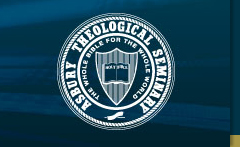Files
Download Full Text (158 KB)
Summary
II. Learning Goals I. General Goals 1. To appreciate the Christian Tradition so the student understands that our generation lives on the growing edge of a vast Christian heritage. 2. To grasp the normative historical expressions of the church that defined its community and mission. 3. To acquire basic factual knowledge of the persons, places, dates, events, and movements that shaped the history of the Christian Church. 4. To comprehend the issues that motivated the Church to develop its beliefs, practices, and structures and to grasp why, from time to time, the Church modified them. 5. To understand the evolution of Christian doctrine with respect to Scripture and tradition and to learn to discern between form and content. 6. To appreciate the importance of primary sources and the nature and effects of historical interpretation. 7. To view the present in the light of the prior beliefs and actions of the Christian community. 8. To evaluate one’s Christian vocation in the light of the historical and theological currents of the Christian tradition. 9. To gain insight into the nature of Christian ministry. 10. To participate in the task of developing capable and effective Christian leadership for the contemporary church which will maintain its faithfulness to its vital heritage. II. Specific Goals 1. To identify the key historical period of the Reformation and post-Reformation period. 2. To understand the major Reformation traditions—Lutheran, Anabaptist, Reformed, and Anglican—and their theologians, especially in terms of faithfulness to the teachings of Scripture, the nature of the church, the sacraments, and soteriology. 3. To grasp the significant issues pertaining to salvation in the Protestant Reformation and understand the issues relating to Roman Catholicism. 4. To understand the Roman Catholic response to the Protestant Reformation, particularly the Council of Trent.5. To recognize and evaluate the major issues involved in the church’s efforts to relate to the social and political structures of the modern world. 6. To explore the eighteenth-century Enlightenment’s impact on the church. 7. To articulate the Puritan, Pietist, and Methodist traditions and to develop an increased awareness of the significant contributions of Wesleyanism to the broader church. 8. To demonstrate an understanding of the First and Second Great Awakenings. 9. To understand the cultural and theological context of historical criticism and its effect on the nature and authority of scripture. 10.To reflect on the problems and possibilities of church/state relations during this period. 11.To explore the interaction between church and culture, as the leading theologians developed their theologies. 12. To survey the major religious cults. 13. To trace the rise of modern missions and how Christianity became a global religion.
Publication Date
January 2007
Publisher
Asbury Theological Seminary
Keywords
SP07, Kentucky, KY, CH502, Spring, Wilmore
Language
English

